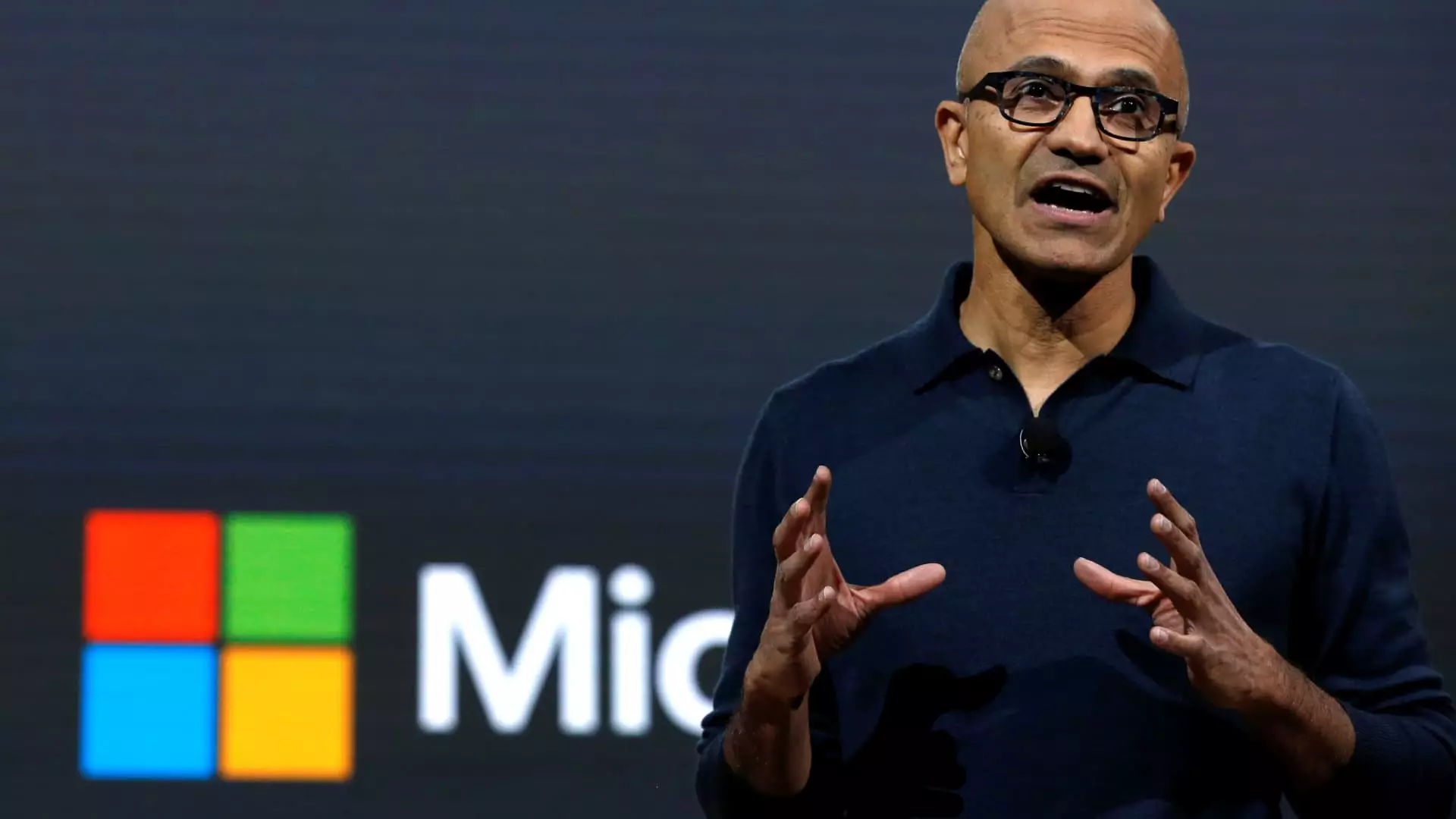Microsoft’s Build developer conference serves as a platform for the tech giant to showcase its latest advancements in artificial intelligence. With CEO Satya Nadella projecting AI to become a fundamental component of every PC by 2024, Microsoft’s ownership of Windows provides a significant advantage due to its vast PC userbase. Through initiatives like the Copilot chatbot assistant integrated into Bing and Office, Microsoft is paving the way for AI integration in Windows and its potential applications on new AI-powered PCs.
Despite its strong position in the AI race, Microsoft faces the dual challenge of maintaining prominence in the AI landscape while boosting PC sales. With PC shipments experiencing a recent uptick following a period of stagnation, there is optimism surrounding the potential for AI tools to drive upgrades among enterprise and consumer users. By enhancing the user experience and increasing the appeal of high-end PCs, Microsoft aims to leverage AI as a catalyst for revenue growth and market expansion.
In the realm of AI computing, the integration of neural processing units (NPUs) represents a significant advancement compared to traditional CPUs. NPUs are specifically designed to handle AI tasks, offering capabilities beyond conventional processors. Companies like Intel, AMD, and Qualcomm are developing chips with built-in NPUs to power AI tasks on PCs. While Google’s Pixel 8 Pro phone showcases AI capabilities without a full computer processor, upcoming PC models with dedicated NPUs are expected to revolutionize offline AI processing.
As the PC chip market evolves, companies are exploring diverse architectures to enhance performance and efficiency. Intel, with a dominant market share, continues to innovate its chip lineup to support real-time language translation, automation inferencing, and gaming advancements. In contrast, Qualcomm’s Arm-based chips offer unique benefits such as extended battery life and sleek design. Microsoft’s interest in Windows on Arm demonstrates the industry’s shift towards alternative chip architectures and their implications for AI computing.
As the tech industry embraces AI as a driving force behind innovation, the landscape of AI integration in PC technology continues to evolve. From generative AI models to custom chatbot development, the possibilities for AI-powered solutions are limitless. Microsoft’s commitment to advancing AI capabilities through Windows and hardware partnerships highlights the transformative potential of AI in shaping the future of PC technology. As developers and consumers embrace AI-driven experiences, the era of intelligent computing is on the horizon.
Microsoft’s Build conference presents a glimpse into the future of AI integration in PC technology, showcasing the company’s commitment to driving innovation through AI advancements. With a focus on enhancing user experiences, boosting PC sales, and leveraging cutting-edge hardware solutions, Microsoft is poised to shape the future of AI computing. As the industry continues to evolve, the fusion of AI and PC technology heralds a new era of intelligent computing, offering limitless possibilities for businesses and consumers alike.


Leave a Reply